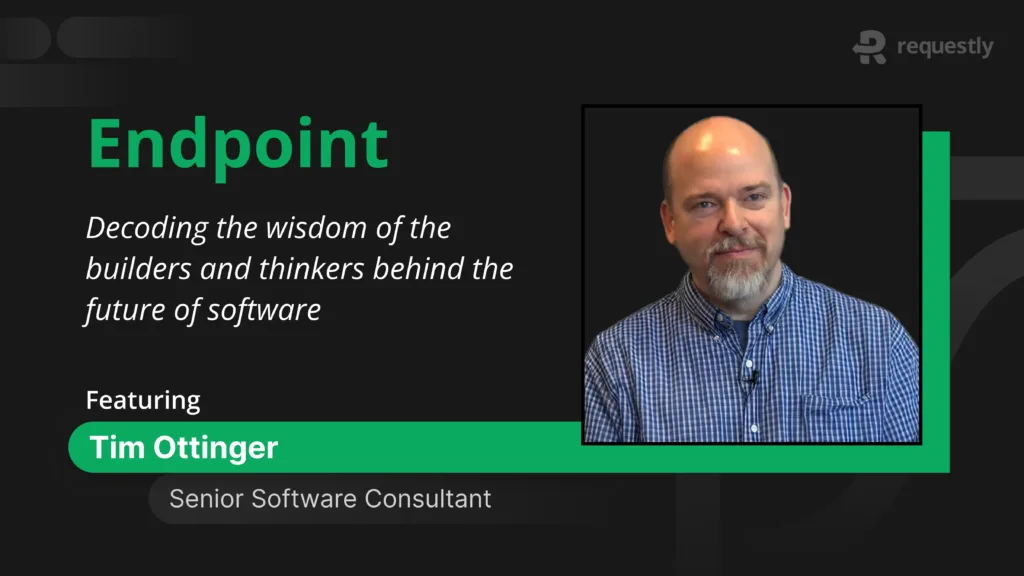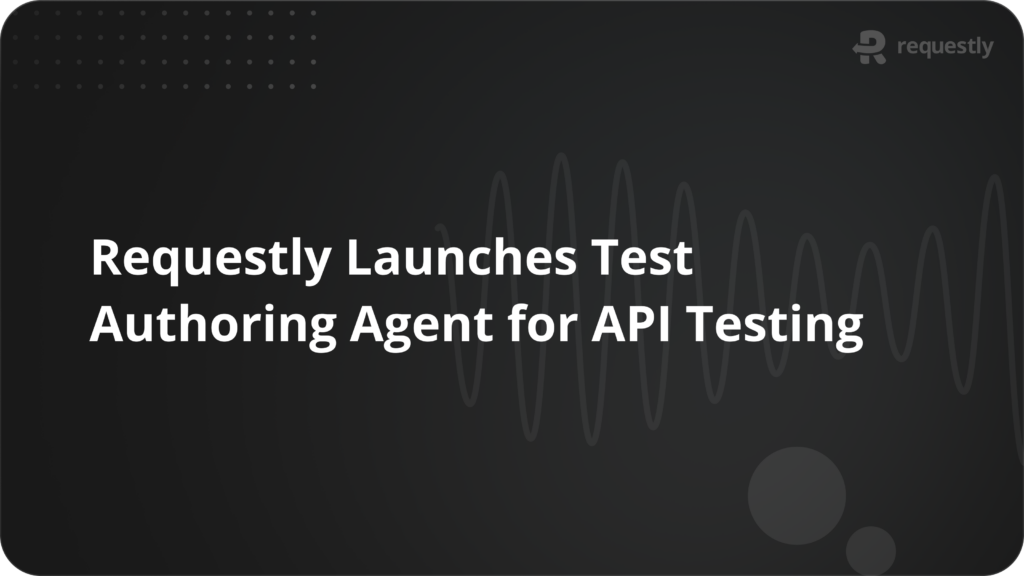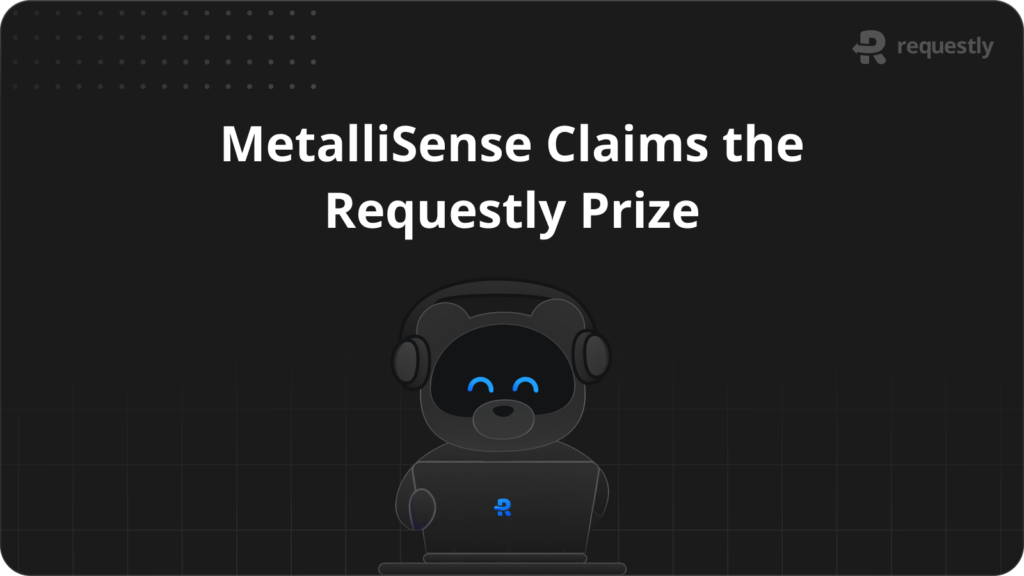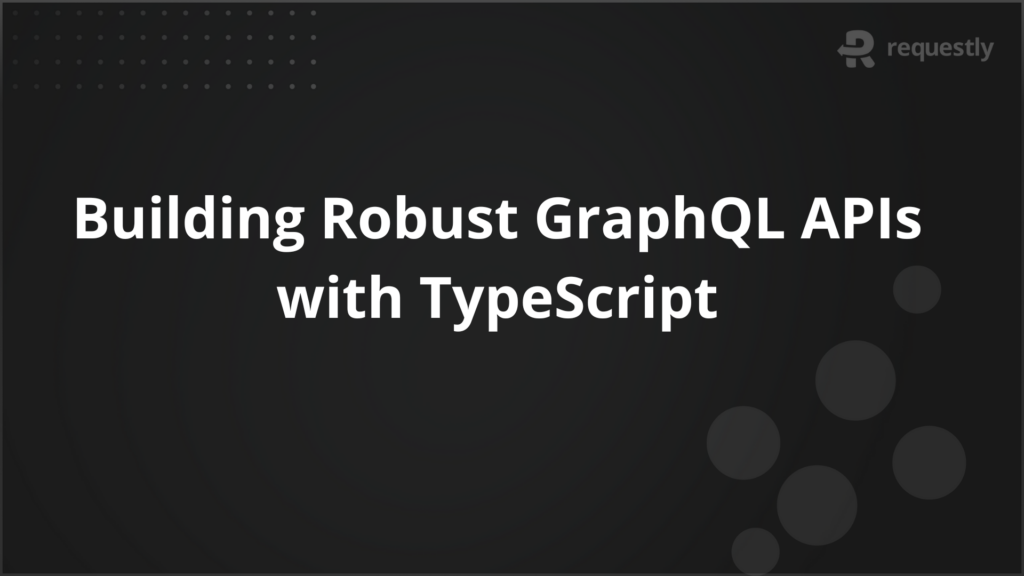Endpoint ft. Tim Ottinger: On the true role of AI and building better software

In the world of technology, some leaders don’t just follow trends—they define them. They are the builders and thinkers, grounded in real-world experience, whose insights push the industry forward. To celebrate their work and bring their hard-won wisdom to the community, we’re proud to introduce Endpoint—a series by Requestly spotlighting the leaders shaping the future of software.
A true icon of software craftsmanship, Tim Ottinger began his career in production software in 1979 and has witnessed the industry’s evolution from its foundational days to the age of AI. As a co-author of the books Clean Code and Agile in a Flash, his work has influenced countless developers. Tim is a consultant, coach, and author of the Agile Otter blog dedicated to helping teams build better software through a practical, compassionate, and hands-on approach.
We spoke with Tim to gain his perspective on the essential mindset for building a lasting, impactful career in technology.
A Q&A with Tim Ottinger
What role do you think AI will play in making development and integration more intuitive for developers?
We are all actively working on this question. There are clearly some things that LLMs can do to help us, and many ways that they seem troublesome, from environmental impact to hallucination and de-skilling of developers.
I can say that, given the right disciplines and conditions, they can be helpful in testing and refactoring legacy code at this point, provided you can rigorously review their work.
They’re great for starting new greenfield projects if you make sure they stop short of implementing project features you never asked for. They’re also pretty good for updating project files and other housekeeping chores (again, given rigorous testing and review).
They’re pretty good for autocompletion in IDEs.
They can be helpful now in augmenting the skills of developers. I hope that’s the trend that the world gets excited about. LLMs will not be a replacement for competent workers, or exhibit human innovation and intellectual ability, but I strongly hope that they will continue being developed to augment human intuition, intention, and capability.
I would love to see more AI work focused on a base of software modeling, so that it presents an interaction with a model of the software we are working on, where the model can help hypothesize the impact of changes we are making as we make them — a kind of “magical hypothetical tester” if you please. That would be truly helpful.
How do you decide when to adopt a new tool or framework, and what factors matter most when evaluating them?
I try all the time. I think “all the time” is a good rule of thumb. But that doesn’t mean “everything, everywhere, all at once” — you have to choose what to “audition” for your work based on what might have a positive effect. Can it help to ensure quality? Can it help us reach a first-time-through ratio closer to 100% for our code pipelines? If a new tool feels fast, but it doesn’t bring a noticeable improvement in overall success and lead time reduction, it’s a trinket. We need to see productivity of teams, not just developer ticket turn-around.
How do you keep up with all the new trends and tools in the tech space?
<laughs> That’s impossible. There are too many more brains outside of my skull than inside it. As fast as I might learn things, thousands of other things are being developed, invented, or discontinued.
I follow people on social media who seem to be going in a good direction, and a lot of very good people are in my network of document referrers. I get more information than I can watch and read, but I try to skim it all and revisit what seems promising.
An important life skill is to not dismiss things just because they’re unfamiliar. I remind people that whatever their favorite food is now, there was a different favorite before they tried it. Also, if they have had the same favorite for 5 years, they need to get out more. As we learn new skills, we expand our “palate” for learning and applying other new skills. There’s no good time to settle down and stop.
What’s one recent innovation or trend you’re most excited about?
“Recent”? Probably the LLMs. More than half the excitement is positive.
I like how people are re-discovering things like CI/CD and TDD and learning to apply good software disciplines—even if it is just to keep the LLM tools from messing up their work beyond recovery! Micro-commits are now a core part of the paradigm, and using a full suite of code reformatters, linters, scanners, and testing tools makes the work far more reliable.
Who’s one developer, tech leader, or thinker you follow and why?
One? Ooooo… that’s hard.
Mike “Geepaw” Hill is the greatest humanist code philosopher living, perhaps. If you aren’t reading his work, then you’re using only half of your brain and soul. Dig in. Enjoy. Be changed.
What’s the most underrated skill for developers today, in your view?
Questioning how they do things.
There is a key idea here, that you make next month better than last month.
Our developers seem to be so committed to turning tickets around and working harder that they have become complicit “good citizens” of systems that seem to produce problems and errors and delays more often than useful software. Even the grizzled veterans of many systems may be stuck in their ways, unwilling to question their own practices.
Looking to AI to make your future for you is very optimistic, even naive.
What’s one piece of career advice you wish you had received early on that you now share with others?
“Taste Your Food” — most people only taste food enough to identify it and recognize any spoilage, but they don’t know what is in the sauce or the seasonings, or if it’s even particularly good or interesting. They treat their work the same way. “It’s programming.” Yes, but how? What’s it like? What would make it just a bit better? “It’s just testing” – but what does it have too much or too little of? “You know, it’s product management” — yes, and what should that be like and how is it now?
People don’t experience their day, so they don’t improve it. They try NOT to think about it.
I have this mindset which comes from working with engineers, the idea that how we do our work matters, and if it matters, we can only get better results by working in better ways. We need to find those.
Without curiosity and that kind of “presence in your work” you can’t build a better future.
What was your biggest takeaway from Tim’s insights? Share your thoughts and join the conversation on LinkedIn!
Join us in celebrating Tim Ottinger and the incredible work of all the developers, builders, and product leaders who are pushing the boundaries of technology. Stay tuned as we continue to spotlight more leaders in our Endpoint series.
Contents
- A Q&A with Tim Ottinger
- What role do you think AI will play in making development and integration more intuitive for developers?
- How do you decide when to adopt a new tool or framework, and what factors matter most when evaluating them?
- How do you keep up with all the new trends and tools in the tech space?
- What’s one recent innovation or trend you’re most excited about?
- Who’s one developer, tech leader, or thinker you follow and why?
- What’s the most underrated skill for developers today, in your view?
- What’s one piece of career advice you wish you had received early on that you now share with others?
- What was your biggest takeaway from Tim’s insights? Share your thoughts and join the conversation on LinkedIn!
Subscribe for latest updates
Share this article
Related posts




















